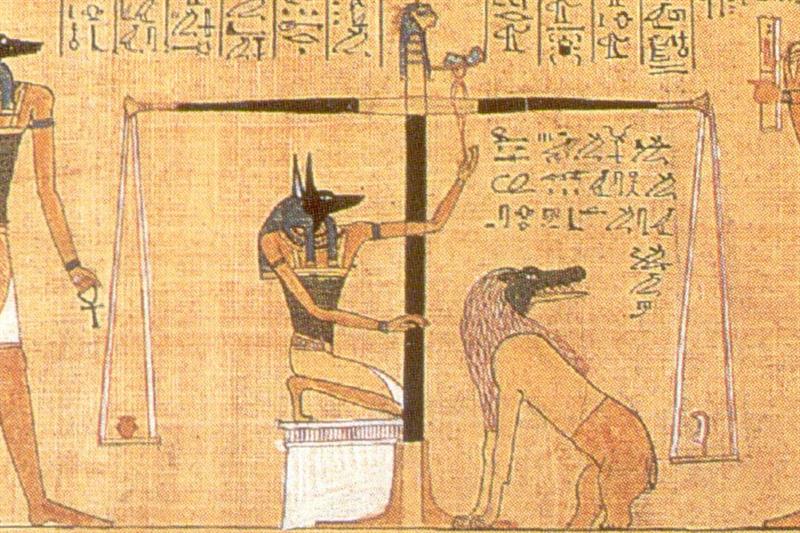What’s on your mind?
Lubna Abdel-Aziz , Tuesday 6 Sep 2022

The greatest enigma of all time has been the one particular element that makes us human.
It has fascinated and puzzled man since antiquity. Defining the concept is a slippery task and many a philosopher, scientist, mathematician, historian have slipped on its many twists and turns throughout the ages.
Consider the massive feats of the ancient Egyptians 4,000 years ago. They built pyramids, temples, statues, and drew magnificent sketches on walls and tombs in vibrant colours and meticulous details. Were they curious as to where this ability came from?
They believed the heart was the source of human wisdom. It was the one organ preserved in the corpse during mummification.
They recorded their technology on scrolls of papyrus, and the first written evidence of the word “brain” is found in hieroglyphics.
After the Egyptians came the Greeks. Hippocrates (460-375 BC) argued the brain was the seat of thought, while Aristotle (c 384-322 BC) was of the mind that the brain was a secondary organ to the heart.
The debate continued through the ages and the brain came out on top. Even contemporary scholar Sir Colin Blakemore of Oxford University, who died in June 2022, believed that the human brain is the machine which alone accounts for our actions.
What about the mind? Do we think with our brain or our mind? Herein lies the rub.
What exactly is the mind?
The relationship between mind and brain has been disputed for centuries. Many scientists believe the mind and the brain are identical. We certainly use them interchangeably. We have this intrinsic belief that the brain controls all our actions. “Use your brains” we say, when we really mean “use your mind”. Our brain does not think for us.
Mind and brain are different but inter-connected entities. The mind works through the organ in our skull, but is separate from it. The mind is separated but inseparable from the brain. The mind uses the brain — the brain responds.
We know where the brain is, what it is made of, how much it weighs, etc, but what about the mind? Where is it? What is it? What are its physical properties?
It has none. The mind occurs, exists, and functions with the brain. They are a unity.
It was about 500 years ago that French philosopher and mathematician Rene Descartes (1596-1650) is credited with the first definition of the mind. Conscious was the distinction.
Unlike the brain, it has no physical characteristics and occupies no space.
Our bodies occupy space. Our mind does not.
What is your mind? It is a hard question to answer, but if pressed you may describe it as the part of yourself that makes you who you are: your emotions, your consciousness, your dreams, your memories. A triad of thinking, feeling, and choosing.
Cogito, ergo sum: I think, therefore I am. That is the legacy of Descartes, the simple definition of the mind. This is what makes us human beings.
There are animals that have some ability to think, but logic and reason are man’s exclusivity.
The question arises if we are using the capacity of our mind/brain to the fullest. There is a sort of myth going around among quasi-psychologists that we are only using less than 10 per cent of our brain’s capacity.
Neurologist Barry Gordon and John Henley of the Mayo Clinic refute the 10 per cent myth. “Evidence would show over a day you use 100 per cent of the brain,” concludes Henley. Gordon supports this conclusion adding: “We are virtually using every part of the brain and most of the brain is active all the time.”
It is a fact that human beings seem to be hardwired for laziness. A new study shows that our brains may be wired to prefer lying on the couch. We are attracted to sedentary behaviour; that is the majority and not the gym addicts. Get off that couch.
Neuroscience is on the edge of new discoveries about the mind that, if true, will put humans on an even higher strata. In his best-seller Journey to the Heart of Being Human, psychiatrist Daniel Siegel of UCLA School of Medicine suggests that “our mind cannot be confused with what’s in our skull or our body.”
Our mind extends beyond ourselves. Meaning what?
The mind is not simply a perception of conscious, information and experience as previously thought. It is those experiences. “Thoughts, feelings, memories that you experience in this subjective world is part of your mind.”
Does that imply its independence from the brain? How? We just stated they are inseparable. If the brain dies, the mind of the being to whom it belonged dies too, right?
Siegel suggests there may be more to our mental life than what the brain does. Shocked? Many scientists agree.
This was first proposed by Islamic philosopher Avicenna (980-1037) who believed that with brain death, reason, memory and consciousness continue.
This is chilling.
Peter Fenwick, a highly regarded neuro-physicist, spent 50 years researching brain death. He concluded that consciousness exists after the brain dies.
Rupert Sheldrake, morphogenesis specialist, explains that “the mind is not the brain.”
But, we just got through our thesis of how inseparable they are.
Ah well. That was yesterday. Science changes from day to day.
So where are we now? A new theory of the quantum family.
A subject for another day.
*A version of this article appears in print in the 8 September, 2022 edition of Al-Ahram Weekly.
No comments:
Post a Comment